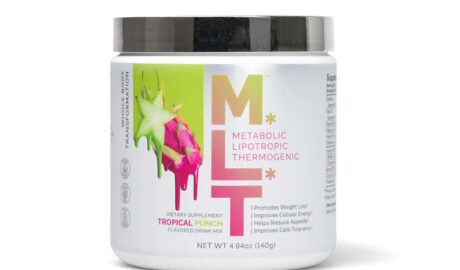
I’ve always been a strong advocate for listening to our bodies and nourishing it with what it needs, when it needs it – without restriction.
This is what guides my community and I in living the Healthy Life… and also why I’m a big believer in a high-protein 3-5pm snack! A nourishing snack around 3-5pm can help to keep blood sugar levels stable until dinner time, combatting the afternoon slump many can experience.
The science of satisfaction
Our bodies rely on a balance of macronutrients: protein, carbohydrates and fats. Each plays a vital role in influencing our energy levels throughout the day.
- Protein: Protein is particularly important when it comes to fuelling our bodies throughout the day. Studies suggest that consuming protein-rich foods can help you feel fuller for longer, helping to keep your mid-afternoon cravings at bay. This happens because protein influences hormones that regulate hunger signals and fullness, like ghrelin and peptide YY1. Protein also supports muscle health and repair, involved in making the enzymes and hormones that help maintain a healthy immune system. All of this is linked to supporting your energy levels and overall wellbeing.
- Carbohydrates: Where possible, opt for high-fibre whole food sources and low-glycaemic-index (or low GI) foods as these types of carbs digest slower, extending the feeling of fullness compared to their low-fibre, high-glycaemic counterparts. This helps avoid those energy crashes and dips (or spikes!) in blood sugar2.
- Fats: Fats play a key role in satiety through their interaction with hormones in the body that signal fullness. Healthy fats, found in nuts, seeds, avocados and olive oil are rich in essential fatty acids, vitamins and minerals that can help you feel satisfied after meals3.
Building a balanced snack
Feel free to unleash your creativity! Here are some pointers…
- Combine protein + healthy fats + fibre: This is the golden trio to keep you feeling satisfied and energised! For example, an apple is a delicious snack option that is high in fibre, but alone it may not leave you feeling energised. When we pair a carbohydrate source with a source of protein such as cheese slices with our apple, it provides us with more energy and helps keep our blood sugar levels stable.
- Personalise your snack: Choose your favourite flavour and texture combinations and pair these with nutrient-dense ingredients that you love. It can be a hard-boiled egg with some cherry tomatoes and a sprinkle of sea salt, or maybe a piece of fruit with nut butter and honey.
- Variety is key: The trick is to rotate the options in your snack routine to prevent boredom and ensure you’re getting a range of nutrients. Try to always have some snacks on hand to help keep your energy up throughout the day.
Some of my personal favourites include a cup of herbal tea with nuts and dark chocolate, veggie sticks with dip, Greek yoghurt mixed together topped with berries and seeds, a piece of seeded toast with avocado, homemade bliss balls (my favourite are our Salted Tahini Bliss Balls, you can find the recipe is in the JSHealth App!), a high-protein smoothie like our “Notella” Protein Smoothie, or rice cakes topped with nut butter and sliced banana.
Preparing snacks ahead of time or keeping a stash of nutritious options in your bag or desk (our JSHealth Bars are perfect for this!) can help set you up for success, no matter where your day takes you.
Snacking… with mindfulness!
Mindful snacking means paying close attention to your body’s hunger cues and stopping when you’re comfortably full. Savour each bite with gratitude – this allows you to truly experience the taste and texture of what you’re eating!
Research suggests that mindful snacking can significantly improve your eating experience. By tuning into your body’s signals, you’re more likely to choose appropriate portion sizes and feel truly satisfied, reducing the urge to overeat later on4.
Eating well doesn’t mean depriving yourself of the foods that you love. Find a balance that allows you to enjoy life while making choices that serve your body’s needs. Indulgence, in moderation, is part of living the Healthy Life! The goal is to develop a relationship with food that is based on nourishment, enjoyment and gratitude.
References:
- Brennan, I.M., Luscombe-Marsh, N.D., Seimon, R.V., Otto, B., Horowitz, M., Wishart, J.M. and Feinle-Bisset, C. (2012). Effects of fat, protein, and carbohydrate and protein load on appetite, plasma cholecystokinin, peptide YY, and ghrelin, and energy intake in lean and obese men. American Journal of Physiology-Gastrointestinal and Liver Physiology, 303(1), pp.G129–G140. doi:https://doi.org/10.1152/ajpgi.00478.2011.
- Astrup, A. (2006). Carbohydrates as macronutrients in relation to protein and fat for body weight control. International Journal of Obesity, 30(S3), pp.S4–S9. doi:https://doi.org/10.1038/sj.ijo.0803485.
- Warrilow, A., Mellor, D., McKune, A. and Pumpa, K. (2018). Dietary fat, fibre, satiation, and satiety—a systematic review of acute studies. European Journal of Clinical Nutrition, [online] 73(3), pp.333–344. doi:https://doi.org/10.1038/s41430-018-0295-7.
- Nelson, J.B. (2017). Mindful Eating: The Art of Presence While You Eat. Diabetes Spectrum, [online] 30(3), pp.171–174. doi:https://doi.org/10.2337/ds17-0015.






